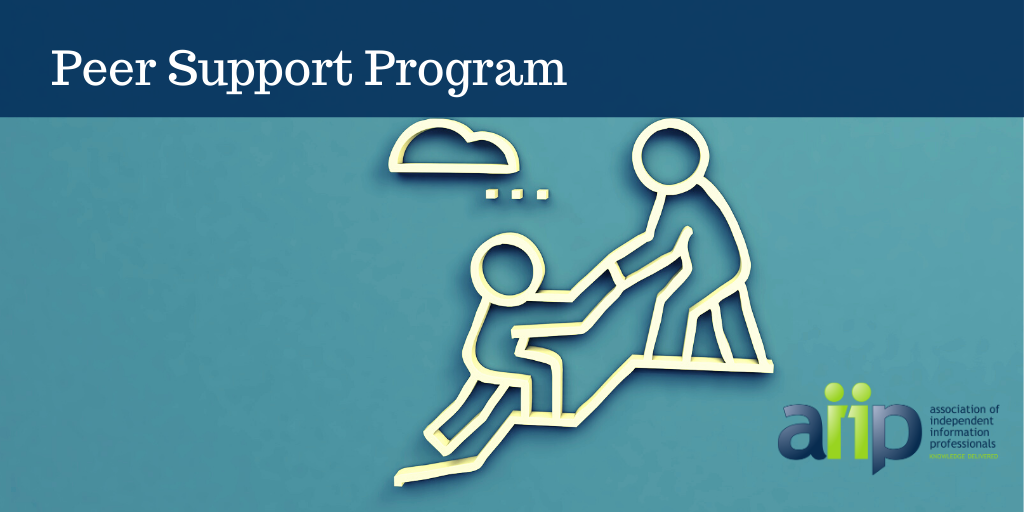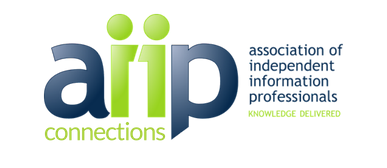Mentoring Success: Dos and Don’ts

By Eddie Ajaeb and Marcy Phelps
As part of an AIIP virtual event about member benefits from the Peer to Peer Support committee, we recently talked about our successful one-year mentoring relationship.
Among other topics, we shared what we had learned that year—about running our businesses and about mentoring—and we shared our tips for success, including this list of dos and don’ts for mentors and mentees:
Do:
Set your goals – It’s important to understand why you’re seeking a mentor and what you want out of the experience. For Marcy, being a mentor meant giving back to the association and the profession and, because mentoring is a two-way street, learning something along the way. Eddie wanted to learn how to identify his ideal clients and market his company. He also asked for ways to recognize progress and growth.
Set benchmarks and guidelines – During our first phone call, we established how we would communicate and how often. We created structure by making sure we knew what we wanted to accomplish during each call and assigning tasks to be completed before the next call (or, as Eddie called it, homework).
Keep an open mind – For both parties, it’s important to know that there are lots of ways to run and grow a business. Remain open to new ideas that don’t fall within your own experience. Mentees should be open to feedback and challenge, as this will ultimately make them better business owners.
Provide tools, not answers – Mentors should share resources, including people, books, blogs, and other places for learning more. It’s important to explore other options and for each of us to find our own path to business success; no one person has all the right answers.
Get out of your comfort zone – For mentees, get ready to think about things you may not want to think about, try some things that may seem scary, and be accountable for your and your mentor’s time. There’s no easy way to success. As a business owner, you will need to talk to people and make decisions, all of which take practice, patience, and constant learning.
Celebrate achievements and milestones – However small, it’s important to recognize progress and look back at what has been accomplished.
Ask questions before giving advice – For mentors, make sure you take time to understand where someone is starting from and where they want to go (not where you think they should go) before coming up with answers.
Let mentees make their own decisions – The best approach is for a mentor to act as a guide and help someone find their own way. While we’re in the same business (private investigations), what works for Marcy may not work for Eddie. And becoming an entrepreneur means having to make decisions all the time.
Don’t:
Rely on just your mentor to bring success – Success comes from learning from a variety of sources about becoming an entrepreneur or expanding your business. Mentees must take ownership of their role and are responsible for putting in the effort and being accountable. Running a business takes dedication.
Forget the foundation – Running a business takes significant commitment, discipline, time and knowledge. Learn the basics of entrepreneurship and business ownership to have the best chances of success and a productive mentorship experience. Remember that you are representing a professional business and upholding a brand for the world to view.
Expect all mentoring relationships to be the same – Everyone’s goals and communication styles are different, and the dynamic changes in every situation. It helps to take what you learn from each person and stay flexible.
Attempt to solve all problems – There’s just so much that you can do within the mentoring time frame (ours was year-long, but the committee offers shorter time commitments). That’s why it’s such a good idea to set and focus on just a few goals.
Mentoring provides value to both sides of the relationship and is one of AIIP’s key benefits. Based on our successful experience, we recommend that members explore this and other AIIP Peer to Peer Support offerings. Members can also view the recording of this webinar here.
Eddie Ajaeb is the founder and president of Nighthawk Strategies, a private investigation firm based in Washington, D.C. specializing in legal research, open source intelligence (OSINT), background checks, and social media investigations. He has been an AIIP member since 2017 and currently serves on the Board of Directors.
Marcy Phelps, president of Marcy Phelps & Associates Inc., started her company more than 20 years ago. She specializes in background investigations for investment, asset discovery, and litigation and is the editor of AIIP Connections blog.





